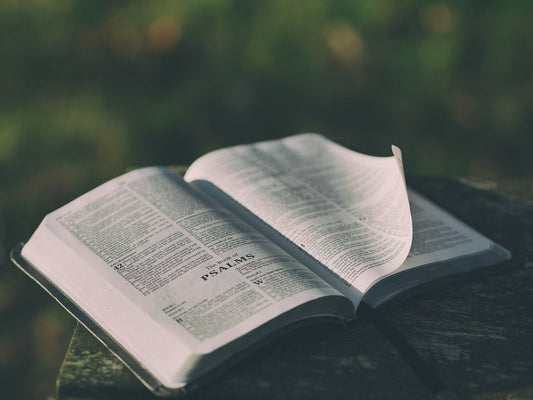
Why We Need to Remember - By Susannah Baker
It doesn’t happen often anymore. But it used to. And when it does happen, it takes me aback. It sucks the air out of my lungs and the logic out of my head. It leaves me scratching my head, wondering where in the world a reaction like that came from.
The most recent time it happened was on the shores of Oregon. My husband and I were in a beautiful setting, enjoying four lovely days with friends. Nothing was wrong. The food was excellent, the scenery stunning, the views breath-taking, the inn where we stayed charming. But then something was said, and in a moment, all bets were off. An alarm went off in my body, a siren sounded in my ears, anger flooded my chest from the stomach up, and I simply shut down.
From the outside looking in, what was said wasn’t a big deal. It had to do with a bonfire on the beach. For months, from the moment we had booked the trip, I had been looking forward to this bonfire. All it required was telling the front desk at the inn that we would like a bonfire on the beach. They provided the wood, the chairs, and the blankets, and even the marshmallows to roast if you wanted them; you just showed up. The last night we were there, I was looking forward to our bonfire, but after dinner was over, the beach was windy, the atmosphere was chilly, and my husband thought it would be better to stay inside. No big deal, right? Wrong.
The moment I realized the bonfire on the beach was not happening, something shifted inside of me. No matter how much I tried to tell myself to pull up, pull out, it’s just a bonfire, for goodness’ sake, it doesn’t matter. It did. Deeply. And not even a walk on the beach by myself could shake the tumultuous, angry feelings inside.
My reaction confused and bothered me so much, I made a counseling appointment to talk about it once I got back. Where in the world did that come from, and why?
As I sat across from my counselor and relayed the whole bonfire debacle, she was quickly able to see something I wasn’t aware of – something from my past was pulling on my present. My reaction had nothing to do with the bonfire and everything to do with my past. It had everything to do with feeling unseen and unheard for many, many years. It had everything to do with living many formative years of my life feeling as though I had to make myself small in order to let other personalities around me live big.
Unbeknownst to me, I had taken that view into adulthood. I had allowed the pain of my past and the way five-year-old Susannah learned to see, interpret, and navigate life dictate how I responded to my present forty-seven-year-old interactions.
As my counselor walked me through remembering painful things about my past and connecting the dots to the present, I felt tremendous relief and sadness. Relief that I finally understood the enormity of my reaction to such a small event, but sadness that I had allowed lingering injury to affect me and the people around me for so long.
None of us likes to remember hard things. No one wants to dive into the murky depths of our past to remember things that brought us pain, injury, sadness, or hurt. But, as counselor Dan Allender says, What stays unremembered stays unhealed.
We don’t dig up the past to further injury; we dig up the past so that it stops intruding on our present. We dig up the past so we are free to be present to our people, to ourselves, and to our God. The best way to stay distracted, busy, frustrated, angry, explosive, weary, preoccupied, and disconnected, is not to remember. It’s to use our emotional energy to keep our past buried instead of allowing it to surface, face it honestly, and then invite Jesus into it to restore, rebuild, and make new.
Pain is unavoidable in this life – it just is. We hear this truth in Jesus’ words when He says, “In this world, you will have trouble” (John 16:33). So our goal in life cannot be to avoid pain. Instead, we must learn to choose the right, life-giving kind of pain. We must learn to avoid the unproductive, unhealthy long-term pain of keeping things stuffed down, unremembered, and simmering just below the surface, and choose instead the short-term pain of allowing the hard things to rise so that we can deal with them honestly and openly in the light.
The Bible has a great deal to tell us about the act of remembering.
The first thing is that remembering is a command, not a suggestion. Over and over again throughout the Old Testament, God’s people are commanded to remember His word, His ways, and His character (Deuteronomy 8:2, 11; Isaiah 46:8-10). They were to remember their sin in order to repent, and they had special appointed feast days to remember their former identity as Egyptian slaves and the deliverance God worked on their behalf (Exodus 12:14-27; 13:3-10).
But while Scripture also tells us while we are to remember our sin, slavery, and deliverance, we are also and always to remember our God. In fact, our places of pain and brokenness are places God loves to dwell. Psalm 34:17-18 says, “The righteous cry out, and the Lord hears them; he delivers them from all their troubles. The Lord is near to the brokenhearted and saves the crushed in spirit.” It’s not that God wasn’t there in our most vulnerable, broken-down places, it’s that we simply need fresh eyes of faith to see Him.
I’ve learned that any time I ask God to help me see where He was in painful moments in my past, He answers. He helps me remember with new sight in a way that instead of seeing and being triggered by the loneliness, rejection, abandonment, shame, guilt, or betrayal in my past, I see Him.
In order to face the short-term pain of remembering, you and I have to know this: we do not remember alone. Jesus goes with us into every hard place. We remember in the presence of the One who made us, loves us, and longs to restore us from every place sin has broken.
I know the pathway back to remembering is a hard one to travel. I know it is fraught with difficulty and the unknown. I know it requires getting still instead of staying busy. I know it requires giving certain things up in your schedule so you can make room for telling your story to those who have the wisdom and capacity to help you remember through a new lens.
But what’s the alternative? To stay stuck? To stay triggered? To let your past continue to take you hostage in the present? I did that for so many years, and it brought so much anxiety, depression, and relational pain. So, take it from me – not remembering is not worth it.
If you want or need to do some work around the area of remembering, I would encourage you to begin your times of prayer or being in God’s presence by answering this question that comes straight from God’s response to Adam and Eve in the Garden: Where are you? (Genesis 3:9) Where are you in relationship to God, to yourself, and to other people? Are you often triggered by and stuck in the past or are you living fully free in the present?
Next, spend time answering the question, God, who are You? So often, we relate to God like He is one of us. We respond to Him like He is the dad who is disappointed with us, the boyfriend who broke up with us, the friend who abandoned us, or the husband who betrayed us. But Psalm 50:21 says, “These things you have done, and I have been silent; you thought that I was one like yourself.” God is not like us, and we cannot let our culture or our past or present relationships tell us who God is. We must learn to let God speak for Himself and tell us who He is through the pages of Scripture. Reading meditatively and slowly through Exodus 34:6-8 is a great place to start learning who God says He is. Linger slowly over each characteristic of God, and ask Him to display and apply those characteristics to your past memories and present realities.
The season of summer can be a great time to remember. For many of us, our normal rhythm and routine slows and quiets, and we have space to do other things. We can stay up a little later, sleep in a little longer, or get up a little earlier to linger in the presence of the Lord through His Spirit and His Word.
By the end of summer, if we decide to embark on the journey of remembering, our goal cannot be to have pain-free lives. Rather, our goal is that the presence of Jesus would become greater, bigger, stronger, and more prevalent than our pain. Our goal is to remember we are never without aid or help – Jesus is always there to walk with us through the valley and to reverse the consequences of sin and suffering through His death and resurrection. While our circumstances of pain may not change, our memories from the past and our responses to them in the present can.
As we do the work of remembering, we become people whose worst memories are wrapped in the presence of God. And while we probably wouldn’t want to go back and repeat a certain memory or difficult season in our lives, we wouldn’t trade knowing the comfort, steadfast love, and faithfulness of our good God through the suffering, hurt, disappointment or pain for anything.
As you remember, remember this: the Lord wants your restoration and freedom even more than you do. He gave His life not to simply restore your circumstances but your soul (Psalm 23:3). And so often He begins this work through remembering.
He makes me lie down in green pastures.
He leads me beside still waters.
Psalm 23:1-3




